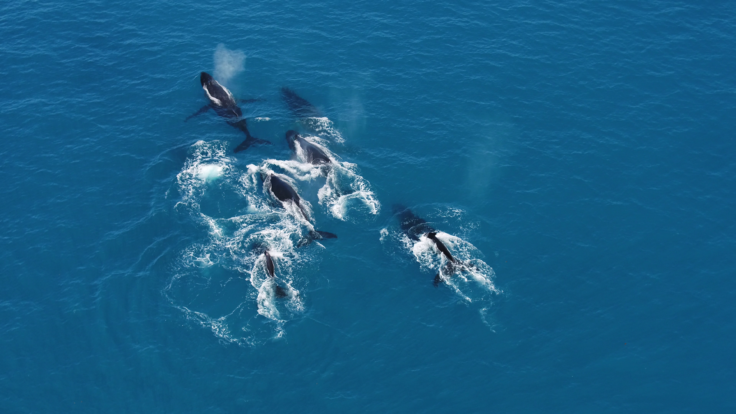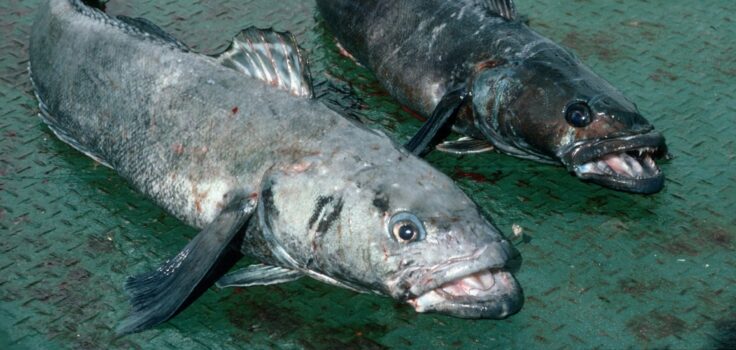Scientists on the remote sub-Antarctic island of South Georgia are working to better understand the rich marine life that inhabits the region. This month teams are focusing on two major projects: one on whales and their consumption of krill (a shrimp-like creature that's abundant in the Southern Ocean), and another on populations of bottom-dwelling fish. Their findings will help ensure the long-term health of the region's ocean ecosystem and support sustainable fisheries.
Whales are the biggest krill predators in South Georgia, but researchers still don't know exactly how much krill they eat or how their feeding habits change through the seasons. Surveys show that many whales remain in the area through winter, overlapping with the krill fishery, which is open to fishing between June and September. To learn more, scientists are using drones to monitor the condition of the whales and attaching satellite tags to track their diving behaviour as part of the Hungry Humpbacks project. This data will help estimate how much krill whales consume and inform how the krill fishery is managed in the future.

At the same time, scientists are studying fish populations through regular groundfish surveys. These surveys, which have been running since the late 1980s, track changes in key species like mackerel icefish and Patagonian toothfish. Researchers are using this long-term data to understand shifts in fish populations over time.
Samples collected from fish stomachs at King Edward Point Research Station, which is operated by British Antarctic Survey (BAS) on behalf of the Government of South Georgia and South Sandwich Islands (SGSSI), are also providing insights into the marine food web. Studying the diets of icefish and toothfish helps scientists track krill availability and broader ecosystem changes. There's also good news for marbled rockcod, a species that was overfished in the 1970s but is now showing signs of recovery.

Dr Mark Belchier is the Director of Fisheries and Environment at the SGSSI. He says:
"The fish survey provides key data on the size of fish populations at South Georgia over time and contributes directly to the sustainable management of the region's fisheries."
The groundfish survey is funded by SGSSI and the UK's Blue Belt Programme.
Steph Martin is a whale biologist at BAS and is the project manager of the Hungry Humpbacks project. She is working around South Georgia and says:
"The Hungry Humpbacks team is excited to be back for a second summer season at King Edward Point to study the recovery of whale populations and krill consumption of humpback whales. All we need now is some good weather and whales in our study area while enjoying the wildlife wonders outside our station bedroom windows."






